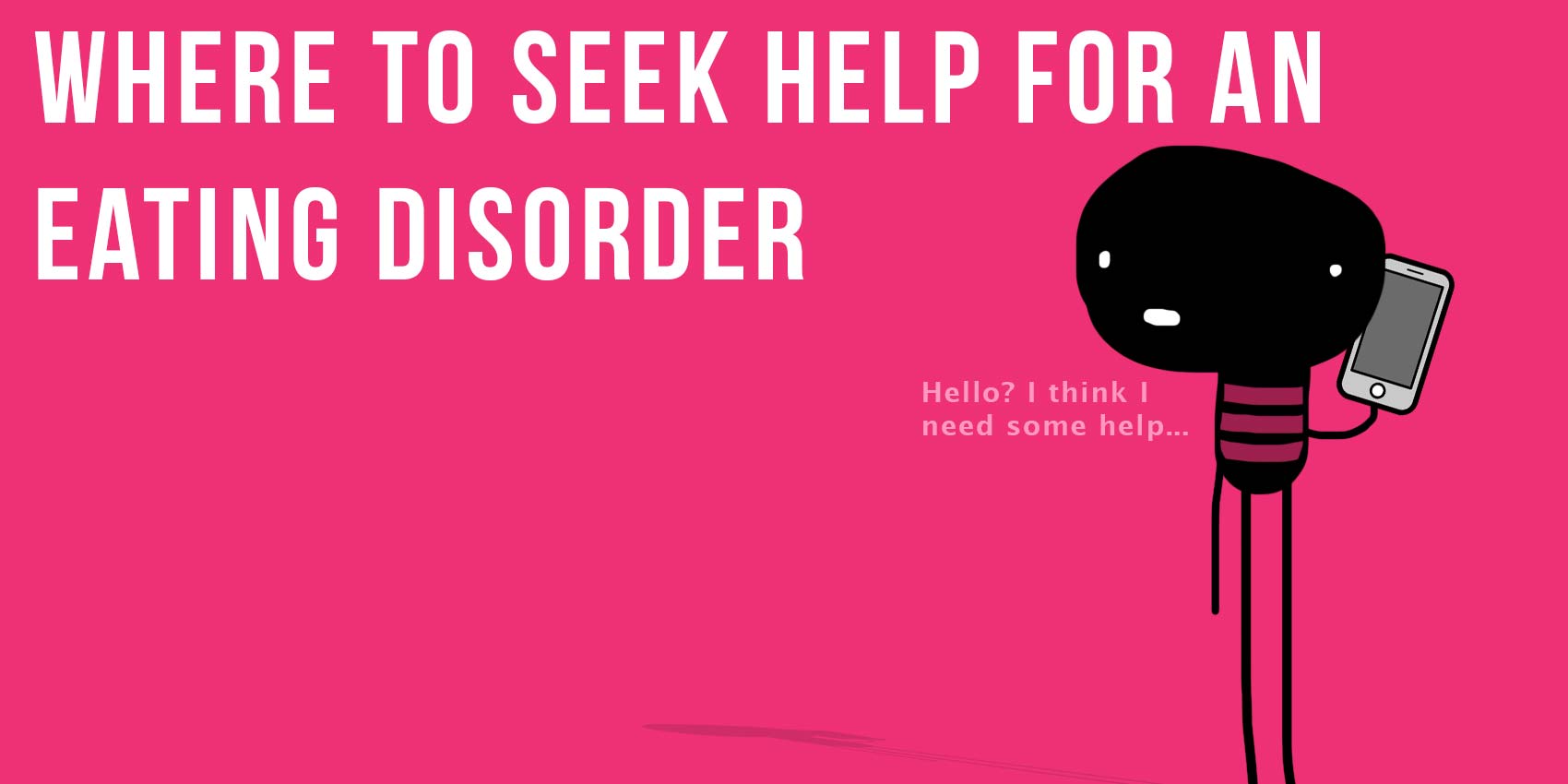07 Feb Where to seek help for an eating disorder

If you, or someone you know, has an eating disorder SEEK HELP. Below is a list of hotlines and websites where you can get the help that you, or they, need:
www.nationaleatingdisorders.org or call the helpline 1-800-931-2237
www.anad.org (Anorexia Nervosa and Related Eating Disorders, Inc)
Treatment for these disorders is vital. Most interventions use a combination of cognitive behavioral therapy and a systems approach (which involves the family and other key members of a person’s life). Often, depending on the severity of the disorder, individuals may attend a treatment facility for several weeks or months before returning home. Other individuals may be treated with outpatient care. Regardless of the type of treatment, early detection is critical. Although some people may improve quickly, for many, treatment may be a long process that takes a lot of hard work. Eating disorders are very difficult to treat and patients often relapse: according to research, 50-70% of those who are treated will recover, but 20%, despite getting better, will still struggle. Sadly, 10-20% will die. However, the sooner a person seeks treatment, the better off they are!!!
(Sources: https://www.psychologytoday.com/us/blog/the-new-brain/201103/the-deadliest-disorder-0 and https://www.nimh.nih.gov/about/directors/thomas-insel/blog/2012/spotlight-on-eating-disorders.shtml)
If you have a friend whom you suspect is struggling with an eating disorder:
DO: let her/him know that you are her friend and that she/he can talk to you.
DON’T: pressure her/ him to eat. This will just drive her/him away. (This is really important!)
DO: try to honor her/his feelings. You don’t need to agree that she/he is “fat” but you can tell her/him that you understand she/he feels “fat” or is afraid of becoming “fat.”
DON’T: support unhealthy behaviors. For example, don’t tell her/him you think running 17 miles a day is okay or that vomiting to lose weight is a good choice.
DO: encourage her/him to get help. Eating disorders are complex and require the help of trained adults. Moreover, early intervention is extremely helpful in treating eating disorders, so reaching out for help early is key. As one expert said, “It doesn’t hurt to be evaluated so why not if you are worried? It may prevent an eating disorder in the long run.”
DON’T: get sucked into the insanity. Being thin is not as important as being healthy or happy… or alive.
Short but true story: Cammie was extremely thin and her two dear friends noticed. When they talked to Cammie about it, Cammie became angry and irritated at them and pushed them away. Fearing they would lose Cammie as a friend was a deep concern. But the overwhelming concern was losing Cammie to the eating disorder, so they reached out to Cammie’s mother. Of course, this was all very painful for Cammie because now she was forced to confront the underlying issues of her eating, but in the end she won the battle. And everyone is great friends as a result!




Post Question:
What would you do if you thought your friend had an eating disorder?
Answer the post question here
What's being said